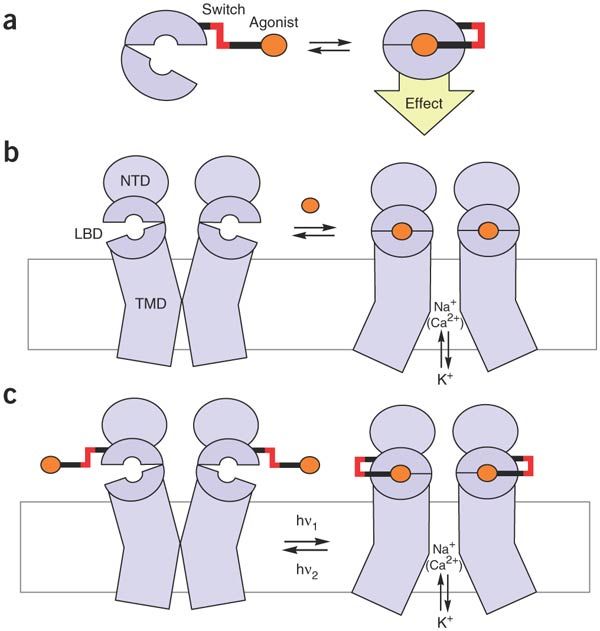
Allosteric control of an ionotropic glutamate receptor with an optical switch
Abstract
The precise regulation of protein activity is fundamental to life. The allosteric control of an active site by a remote regulatory binding site is a mechanism of regulation found across protein classes, from enzymes to motors to signaling proteins. We describe a general approach for manipulating allosteric control using synthetic optical switches. Our strategy is exemplified by a ligand-gated ion channel of central importance in neuroscience, the ionotropic glutamate receptor (iGluR). Using structure-based design, we have modified its ubiquitous clamshell-type ligand-binding domain to develop a light-activated channel, which we call LiGluR. An agonist is covalently tethered to the protein through an azobenzene moiety, which functions as the optical switch. The agonist is reversibly presented to the binding site upon photoisomerization, initiating clamshell domain closure and concomitant channel gating. Photoswitching occurs on a millisecond timescale, with channel conductances that reflect the photostationary state of the azobenzene at a given wavelength. Our device has potential uses not only in biology but also in bioelectronics and nanotechnology.